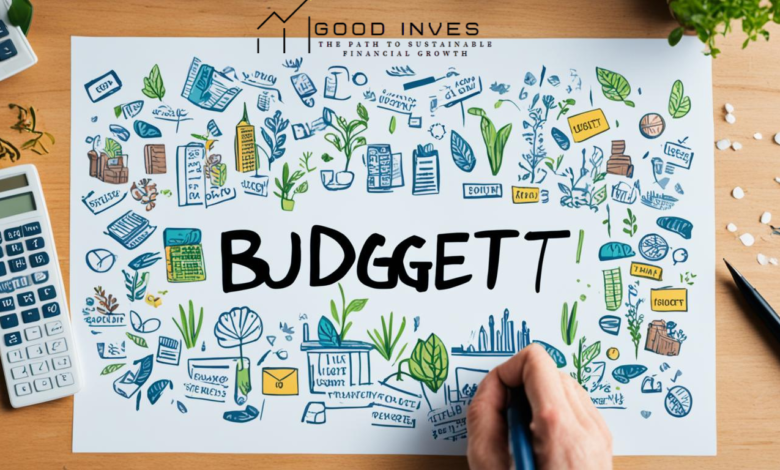Budget preparation: When should you start planning your?

Getting ready for your budget is key for any organization, big or small. It helps with effective financial management and reaching your goals. Ideally, you should kick off the budget preparation process 3-4 months before the next fiscal year.1 This early start gives you time to collect and review data, work with others, and create your financial roadmap. This plan should match your organization’s aims.
By beginning early, you’ll see several advantages. Better project management, more precise data, and the chance to plan out different financial strategies are some.2 The time you need, and how you go about making your budget, can depend on a few things. These include the size of your company, how complex your budget is, your team’s skills, and the market you’re in.2
Key Takeaways
- Budget preparation should start 3-4 months before the next fiscal year
- Early budget planning allows for better data gathering, analysis, and strategic planning
- Factors like company size, budget complexity, and industry influence the budget preparation process
- Effective budget planning is crucial for financial management and strategic execution
- Starting the budget process early provides benefits such as improved project management and data accuracy
Benefits of Early Budget Preparation
Starting the budget early is key for success and keeping your cool. It lets organizations clean and check their data. They can then spot ways to save money and plan for different outcomes. This makes sure everyone agrees and has a plan in place that fits their schedule.3
Project Management
Early budget prep helps manage projects better. It means you can set doable timelines, use resources well, and bring different teams together. This makes the budgeting process smoother.4
Accuracy
Getting a head start allows for careful data collection and checking. This leads to better predictions on income and expenses. As a result, decision-making gets more informed and solid.3
Strategy
Starting the budget early helps in looking at different scenarios and finding places to save during the year. It also connects the budget to big strategic goals. This makes your financial plans stronger for the long run.4
Factors Influencing the Budget Preparation Process
Every budget process is unique, especially between small to medium-sized businesses and larger ones. There are many factors influencing budget preparation, budget process, and budgeting approaches. These affect how long and complex preparing the budget can be.5
Experts from the Forbes Finance Council say it’s key to look at past financial data when budgeting and forecasting. This helps spot revenue trends, cost patterns, and where profits lie. They advise studying marketing success to know where to cut and invest.5
For nonprofits, economic changes and how donors act deeply affect budget planning. They should also be ready for surprises like natural disasters or political upsets. Planning for these with strategies and backup revenue plans can keep costs in check.5
Linking budgets to overall goals is crucial for success. Besides, outside trends and how customers behave can change budgeting and forecasting heavily.5
When inflation is high or rates go up, budgeting can get tricky. Keeping an eye on economic signals like inflation and interest rates helps keep budgets right.5
For groups with many incomes, a good fund accounting system is a must. They should focus on predicting income first and aligning costs with plans.6
To manage risk, it’s vital to have varied income sources. Knowing the difference between funds that can and can’t be used helps. The budget must match the group’s goals over the short and long run.6
It’s important to plan for big buys that don’t go into daily operations. Making budgets clear with charts helps those looking at it understand.6
Set enough time for budget feedback and review—it’s crucial. After it’s all approved, keep a close eye on costs and earnings. If the budget doesn’t match how funds are actually used, make changes.6
Steps to Prepare for Budget Planning
Getting ready for budget season is crucial. It needs thinking ahead, wondering, and working together. This ensures your budget moves your company forward. Here’s how to get ready for a great budget season:
Identify Organizational Goals
First, match your budget work to the big goals and plans of your company.7 Knowing what the organization wants to achieve helps you make a budget that works well for these goals.
Gather Historical Data
Look at the past financial numbers to find trends, areas to improve, and patterns.8 Seeing how well you did against your plans can give you good clues for your next budget.
Estimate Income and Expense Expectations
Take a good guess at how much money you’ll make and spend in the next fiscal year.8 Think about costs that stay the same, change, or could grow if your income does.
Consider Hiring and Expansion Costs
Think about costs from hiring more people, changes in staff, or growing your business.2 These choices will have a big effect on your budget and how you use your resources.
Review Performance Metrics
Check key signs and numbers to see how well your last budget did.2 This info can help you do better next time and set goals you can really reach in your new budget.
Talk to Department Stakeholders
Work with your team leads and key staff to listen to them, learn their needs, and solve budget worries.7 Talking and working together makes sure the budget fits the company’s main goals.
Designate Your Budgeting Team and Assign Specific Tasks
Put together a team just for budget work and give each person clear jobs.7 This may mean some folks gather data, others check over it, and then you all put the budget together.
When To Budget For The Next Fiscal Year
Budget preparation for the next fiscal year should start three to six months before the current year ends.1 This varies from one organization to another. It could be any month of the year. It’s key to plan early with your team and leaders. Also, make sure all staff are informed.9 This early start allows ample time to review last year’s budget, make changes, and prepare for the next fiscal year.1
Starting on time with fiscal year planning and budget preparation matters a lot.1 It helps bring an organization’s financial goals and resources into harmony. Early budget preparation lets companies smoothly figure out when to budget for next fiscal year. It gives them enough time to look at past financial data, make solid plans, and work closely with important people.1
Good planning and fiscal year planning keep a company flexible. It helps them adapt to market shifts and choose well for the future success.1 In the end, starting the budget preparation process early, like three to six months before the fiscal year, offers the freedom and insight needed. This is to build a strong and clear financial plan.1
Why Budgeting Effectively For The Next Fiscal Year Matters
Setting a right budget is key to help your group succeed. It affects everything, from how well you follow business seasons to where you put your money1. It also means knowing about taxes and planning how money moves1. Then, there’s tracking how you perform, following rules, and making people trust that your money matters1.
Creating a solid fiscal year budget and strategic financial planning is vital. It ensures the importance of effective budgeting for your future success. By carefully planning for the next fiscal year, you use your money well, keep a good cash flow, and show leaders you’re solid with finances.1
Starting your budget work early and getting help from everyone cuts risks. You avoid fines, keep others’ trust, and stay away from legal trouble that bad budgeting can bring2. Having your team give input makes the budget fit real needs. It ensures spending is smart, leading to the best results.2
Choosing to focus on effective budgeting boosts your financial shape. It helps you make better choices and wins the trust of everyone involved. These steps are key for growing and staying successful over time1.
How To Budget For The Next Fiscal Year
In a business, December doesn’t mark the year’s end. This is unlike personal financial planning for most people.2 To budget well, start by looking at the current year’s budget and how the company performed.2 Then, match your budgets with what the organization wants to achieve. Estimate next year’s incomes and spendings.2 Be ready for unexpected costs, involve key people, and keep adjusting your plan.2
1 Begin planning for the next year around three to six months before the current year ends.1 Consider business cycles and how to use resources smartly while following rules. This way, you make sure your budget helps check your progress, predicts your financial future, and keeps everyone’s trust.1 Start by looking at how well this year’s budget did. Then, guess what money you’ll make and spend next year, and talk to the people who matter about the plan.1 Using tools like Martus’ can make budgeting easier and better.1
2 High-performing teams finish their budget in 25 days. But, some need up to 50 days.2 The time it takes can be different based on a few things like the company’s size, how big the finance team is, and the technology they use.2 Big companies often choose a more flexible budget method.2 Looking at how the business has done in the past, in terms of money and success, helps make a good budget.2 Talk to the teams early to hear what they need and to make sure resources go where they’re most needed.2 Make sure everyone knows what they’re in charge of when getting the budget ready. This keeps things running smoothly.2
The Importance of Business Budget Planning
An annual budget is key to a company’s finances yet it’s often neglected.4 This process is vital for small and mid-size businesses. It helps them understand what the next 12 months will bring in terms of sales, margins, hiring, and big expenses.4 Being prepared with this info is important for investors and others looking at the company.
The importance of business budget planning cannot be overstated. It’s crucial for financial management and keeping stakeholder confidence.4 The benefits are huge. They include better financial decisions, more clarity in goals, and increased confidence in decision-making.4 A yearly business plan includes improvements, market analysis, goals, and more.4
Setting a budget helps control the company’s cash, when to invest, and where to put resources.4 A budget keeps things running smoothly financially, ensures promises are kept, and aids in planning future projects.4 The business planning cycle goes through several steps including goal setting, budget creation, and ongoing reviews.4
| Benefits of a Business Budget |
|---|
| Effective money management |
| Resource allocation |
| Performance monitoring |
| Goal achievement |
| Improved decision-making |
| Problem identification |
| Future planning |
| Staff motivation |
When you’re putting together a budget, look at things like projected sales, costs of sales, and fixed expenses.4 To create a budget, you should set aside time for it, use past data, and involve your team.4
A budget should look at cash flow each month.4
Starting with a general budget, small businesses can later refine it for each area as they grow.4
Tips for Effective Budget Preparation
Creating a good budget is vital for any organization. It might seem hard, especially without a finance team. But, with some key steps, you can make a budget that helps meet your company’s aims. Let’s look at some tips to help in preparing your budget.
Consult All Departments
For a great budget, you need insights from all parts of your company. Talk to leaders in sales, marketing, operations, and HR to learn about their needs.10 This will make sure your budget meets the financial needs of the whole business.
Estimate Revenues
Guessing your company’s income is key in budgeting. Look at past sales, market trends, and likely changes in what customers want.10 Forecast both near and longer-term income to make sure your budget’s earnings reflect what your business can actually make.
Determine Expenses
Knowing and correctly guessing your costs is important. Split costs into fixed (like rent) and variable (materials) to make it easier.11 Look at old spending and think about likely changes to ensure your estimates match your company’s goals.
Identify Capital Expenditures
Your budget needs to cover more than just everyday costs. Important, one-time buys like new equipment should also be included.10 Think about how these will help the business in the long run and support your goals.
Calculate Cash Flow
A strong cash flow is crucial for your business’s health. Predict your money coming in and going out, including how you pay and get paid.10 This can highlight any future cash issues and allow you to plan ahead.
Be Conservative
It’s smart to be careful when making a budget. Guess on the low side for income and high for costs. This could help your budget handle surprises or market changes.11 This approach can keep your company steady and prevent big financial shocks.
Start Early
Don’t leave budgeting for the last minute. It’s best to start several months before the fiscal year starts.10 This early start lets you look at past data, spot trends, and make a solid budget that meets your goals.
Monitor, Evaluate & Reforecast
Setting a budget is just the start. You need to keep checking on it and adjust as you go.10 Being flexible will keep you aligned with your targets despite market changes or shifts in what your company needs.
By using these steps, you can improve how you make your budget, setting your organization up for financial health.
Budget preparation: when should you start planning your
Creating a budget is important for all types of businesses. It helps them manage their money well and reach their goals. Experts say it’s best to start making a budget 3 to 4 months before the new year. This gives enough time to collect and analyze data, work with others, and make a plan that fits the company’s needs.1 Getting an early start has many pluses. It helps manage projects better, makes sure the numbers are right, and lets you plan for the future.2 The time it takes to prepare a budget depends on how big the company is, how complicated the budget is, and what the industry is like.
2 The best companies can finish their budgets in just 25 days. But, others take longer. Some big companies might use a rolling budget that constantly updates. Smaller businesses often stick to a fixed budget.2 It’s not about the size of the company though. What really matters is having good access to information, using systems that work together, and automation to make things go smoothly.
2 To start your budget, figure out what you want to achieve, look at past financial data, and guess what money is coming in and going out. Think about costs for new hires or growing the team. Check how well the company is doing and talk to the people in each department. Choose a team to work on the budget and give them jobs to do.
1 It’s a good idea to start planning for the next year’s budget 3 to 6 months before the current year ends.1 Working on next year’s budget while you’re still in the current year helps fit plans to the business’s needs. It’s about smartly using resources, thinking about taxes, and making guesses about the future.
1 Using new technology like Martus’ Budgeting Tool can make preparing a budget easier and make better teamwork.1 This tool has smart features like easy-to-use tech, showing financial info clearly, giving detailed reports, and being able to change the budget as needed during the year.
Conclusion
Budget preparation is key for any organization to plan well financially and meet their goals. It’s best to start work on the budget 3-4 months before the new fiscal year begins. This time allows for gathering data, talking with key people, and making a solid financial plan.7
Most businesses follow the calendar year. But, the federal government starts its fiscal year on October 1, ending on September 30. Places that get state funds usually use July 1 to June 30.12 Non-profits must carefully budget their expected spending and income. They should lower their spending estimates to avoid overdoing it.12 Especially, non-profits should set money aside for major costs like staff pay, utilities, and supplies. Some may also need to have their finances checked each year by a CPA. The cost of this audit depends on how much the organization budgets.12
Starting early on the budget helps organizations master their projects and handle money better. This leads to more accurate data and a stronger financial plan. In the end, their budget fits their business goals perfectly. It sets them up for a successful next fiscal year.13
FAQ
When should organizations start the budget preparation process?
Experts suggest beginning the budget process 3-4 months before a new fiscal year. This gives time for data collection, analysis, and stakeholder meetings. It also allows the creation of a solid financial plan.
What are the key benefits of early budget preparation?
Early budgeting helps in better project management. It also ensures more accurate data. This allows organizations to plan for different financial situations.
What factors influence the timeline and complexity of the budget preparation process?
Company size, budget depth, and the capacity of the finance team are crucial. Also, the dynamics of the industry play a part. These factors impact the time and method used for budgeting.
What are the steps to prepare for a productive budget season?
Gather all necessary data before you start. Then, set clear organizational goals. Estimate your expenses and incomes carefully. Also, think about any new hires or expansion costs. Make sure to review your past performance too.
It’s important to talk to people from all departments. Create a team dedicated to budget planning. And give them clear tasks to focus on.
Why is it important to budget effectively for the next fiscal year?
Creating a good budget affects how well your company runs. It also helps in planning your resources better. This includes tax planning and predicting your cash flow. A good budget boosts your team’s work, meets rules, and builds trust in your financial health.
How can organizations budget effectively for the next fiscal year?
Start by checking how this year’s budget went. Make sure your new budget lines up with your main goals. Think about your income and what you’ll spend. Always have a plan B. Involve everyone who might be affected by the budget. And keep an eye on it, making changes as needed.
Why is business budget planning essential for organizations?
Budget planning helps answer big questions for the next year. Like, what sales and profits do we expect? Also, it forecasts your hiring and spending on big items. This info is key for investors, banks, partners, and anyone looking to buy your company.
What tips can help with effective budget preparation?
It’s important to talk to all parts of your organization. Think hard about your expected income and what you’ll spend. Don’t forget your big purchases. Make sure your cash flow is well-calculated. It’s good to be a bit cautious in your estimates.
Start planning your budget early. And keep checking and updating it all year. This will help you stay on track.





